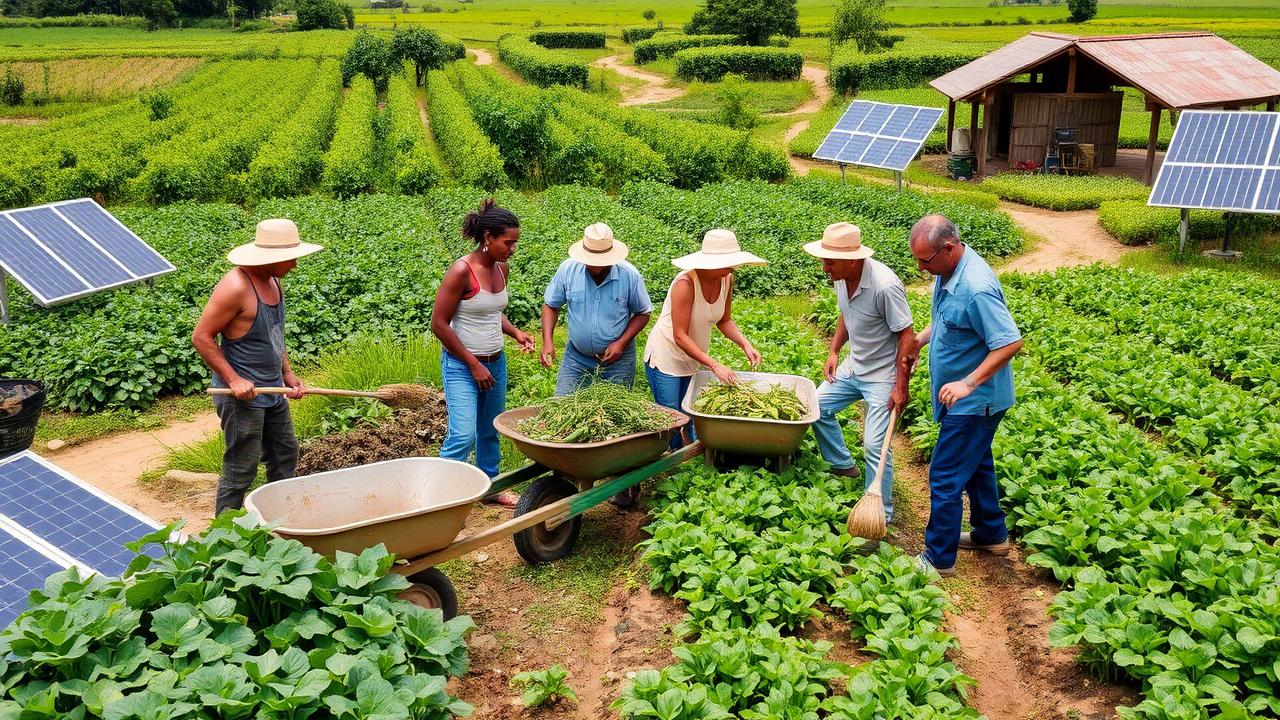Sustainable Farming Practices for the Future
As the global population continues to grow, the demand for food increases alongside concerns about environmental degradation, climate change, and resource depletion. In response, sustainable farming has emerged as a vital approach to ensuring food security while preserving the planet for future generations.
Sustainable farming goes beyond simply producing food—it focuses on methods that maintain soil health, conserve water, reduce chemical use, and promote biodiversity. By adopting these practices, farmers can cultivate resilient agricultural systems that benefit both people and the environment.

Key Sustainable Farming Practices
1. Regenerative Agriculture
Regenerative agriculture prioritizes restoring soil health through techniques like cover cropping, crop rotation, and reduced tillage. Healthy soil sequesters carbon, improves water retention, and enhances crop yields naturally. Over time, this method reduces dependency on synthetic fertilizers and pesticides while fostering long-term productivity.
2. Agroforestry
Integrating trees and shrubs into farmland—known as agroforestry—creates a more diverse ecosystem. Trees provide shade, prevent soil erosion, and support pollinators, while also producing additional yields like fruits, nuts, or timber. This practice mimics natural ecosystems, promoting sustainability and resilience.
3. Organic Farming
Organic farming avoids synthetic chemicals, relying instead on natural fertilizers, compost, and biological pest control. While it may require more labor, it protects soil microorganisms, reduces water pollution, and produces healthier food. Certification programs help consumers identify and support organic products.
4. Precision Agriculture
Technology plays a crucial role in sustainable farming. Precision agriculture uses GPS, sensors, and data analytics to optimize water, fertilizer, and pesticide use. By applying resources only where needed, farmers minimize waste and environmental impact while maintaining high productivity.
5. Water Conservation Techniques
With water scarcity becoming a pressing issue, sustainable farms implement drip irrigation, rainwater harvesting, and drought-resistant crops. These methods reduce water waste and ensure efficient usage, especially in arid regions.
6. Integrated Pest Management (IPM)
Rather than relying solely on chemical pesticides, IPM combines biological controls (like beneficial insects), crop rotation, and monitoring to manage pests sustainably. This approach reduces chemical runoff and protects beneficial species.
7. Supporting Local & Small-Scale Farms
Local and small-scale farms often employ sustainable practices more readily than large industrial operations. By supporting these farms through farmers’ markets or community-supported agriculture (CSA), consumers contribute to a more resilient and eco-friendly food system.
The Future of Sustainable Farming
The shift toward sustainable farming is not just a trend—it’s a necessity. As climate challenges intensify, farmers, policymakers, and consumers must collaborate to prioritize eco-friendly agriculture. Innovations in biotechnology, renewable energy, and circular farming (where waste is minimized and reused) will further enhance sustainability.
By embracing these practices today, we can ensure that future generations inherit fertile land, clean water, and abundant food—without compromising the health of our planet.
Would you like to explore any of these methods further? Whether you’re a farmer, gardener, or conscious consumer, every step toward sustainability makes a difference. 🌱

